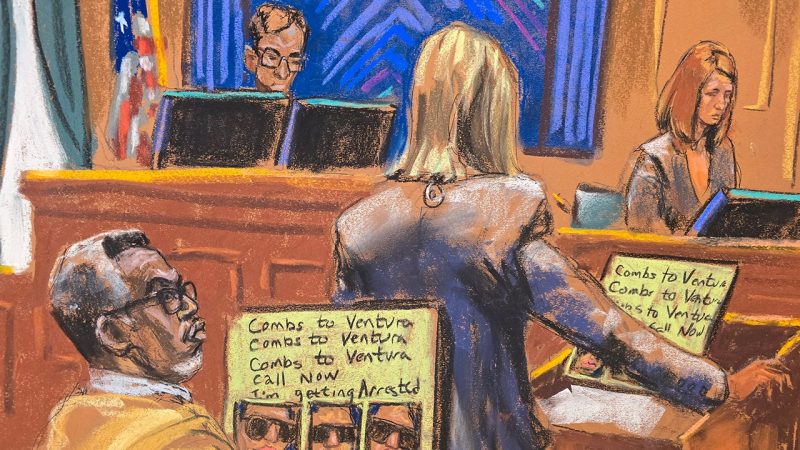
The Sean ‘Diddy’ Combs federal trial is heating up, and a recent strategic shift by the defense team has legal experts buzzing. Prosecutors signaled they’ll rest their case by the end of the week, marking a significant turning point in the nearly six-week-long proceedings.
This announcement is closely followed by a surprising revelation from Diddy’s legal team. They’ve drastically reduced their projected time for presenting the defense case, from a previously requested two weeks to a mere two to five days. This unexpected shortening of their timeline has sparked speculation about the defense’s strategy and the overall strength of the prosecution’s case.
New York-based attorney Nicole Brenecki suggests this change might indicate that the defense has identified vulnerabilities in the prosecution’s arguments. She points out that the prosecution’s case largely relies on testimony from disgruntled former girlfriends and employees, which might not be enough to convince a jury of Diddy’s guilt on charges of racketeering, sex trafficking, and related offenses. The high burden of proof resting on the prosecution is a key factor, as the jury needs to be convinced beyond a reasonable doubt. A shorter defense may highlight the perceived weaknesses in the prosecution’s evidence.
Another legal expert, David Schwartz, echoes this sentiment, explaining that a shorter or even absent defense presentation emphasizes the prosecution’s failure to meet its burden of proof. A lengthy defense, on the other hand, might inadvertently distract the jury from this crucial aspect of the case. Schwartz highlights the defendant’s presumption of innocence and underscores the importance of the prosecution’s responsibility to prove guilt beyond a reasonable doubt.
Los Angeles litigator John J. Perlstein, however, offers a more nuanced perspective. While acknowledging that two to five days is a common timeframe for defense presentations in criminal cases, he suggests that the initial two-week request might have been a strategic overestimation to account for unforeseen circumstances, such as witness availability or the emergence of new evidence. The reduced timeframe, therefore, could simply reflect a more realistic assessment of the defense’s needs.
The trial has not been without its drama. The judge recently reprimanded both the prosecution and defense for violating a court sealing order by discussing the trial with the media. The judge’s warning underscores the high stakes and intense scrutiny surrounding this high-profile case.
The courtroom drama continued with the presentation of videos and text messages between Diddy and his ex-girlfriend, Cassie Ventura, revealing details about their relationships and alleged ‘freak offs’ with male escorts. These revelations shed further light on the complex nature of the allegations against Diddy.
Diddy, who maintains his innocence, faces a minimum of 15 years in prison if found guilty. The trial is expected to conclude by July 4th, leaving the courtroom and the public anxiously awaiting the verdict. The defense’s strategic shift only adds to the mounting suspense.










